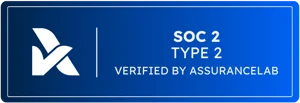Since 2004, the United States has recognized April as Financial Literacy Month and focusing on financial literacy is important now more than ever. According to the National Financial Educators Council (NFEC), a lack of financial knowledge cost Americans collectively more than an estimated $295 billion in 2018.
You can help your clients keep some of that money! We are seeing increasing demand for free educational seminars. The key word here is educational. These events are not intended to “sell” your services. Review your seminar material and make sure the primary objective is education. By offering free educational seminars, you will position yourself as a helpful resource in your community. Attendees will naturally gravitate towards your expertise when they have questions about their financial plans.

Picking Seminar Topics
Choose impactful seminar subjects that will make a measurable difference for the audience’s financial well-being. Discuss the topics that clients frequently have questions about. Help attendees challenge prior assumptions about topics like Social Security or taxes in retirement. When they hear you address their concerns directly, they will be more receptive to your insights about things they haven’t thought about.
Consider hosting an educational series on these topics:
- Social Security Claiming Strategies: The majority of people begin collecting Social Security earlier than their full retirement age — a decision that often means they’re losing out on thousands of dollars. One of the biggest opportunities in the marketplace is for advice on Social Security. Use presenting on this topic as an opportunity to invite prospects to meet with you and discuss their strategies.
- Tax-Efficient Retirement: Many retirees have questions about how changes created by the recent Tax Cuts and Jobs Act will affect them. Middle income retirees can face federal tax rates as high as 49.25%on each additional withdrawal from a retirement account. When you present the facts on how taxes really work and the impact of the new legislation, you show clients your value.
- Portfolio Risk Analysis: Clients are often blind to market risk and typically don’t have accurate downside expectations — either too conservative or too reckless, leading to sub-optimal investment allocations. Advisor-client discussions are changing, and, many clients are asking questions about what will happen to their investment portfolios in the next market crash.
- Long-Term Planning: Pre-retirees fret about running out of money in retirement and losing their independence, but the sad reality is that one of the greatest risks they face is outliving their money. A single unexpected extended-care event can derail their entire financial plan. Show attendees how the proper retirement planning steps can mitigate these risks.
- Estate Planning: Prospective clients may be asking what estate planning documents they need. As people make and change their financial plans over time, they may not consider reviewing their wills, trusts and titles. Oftentimes things change between the time that they create their estate documents and when they need to be used. Ensuring that estate administration, taxes, powers of attorney and other legal documents communicate your clients’ current wishes is a valuable part of their overall financial plan. If this isn’t your area of expertise, consider bringing in an attorney to co-present with you.
- Medicare Planning: Clients and prospective clients have questions about Medicare. What are Parts A, B, C, and D? What are the costs? What is and is not covered? What are the important dates that they should be aware of? Help retirees and pre-retirees in your community navigate the complexities of the Medicare system.
Location
Since the objective of your seminar is to educate attendees, you should find an educational venue. Financial Literacy Month is a perfect time to team up with your local public library, or reach out to a community college or local university. A partnership with a well-known educational entity in the community will give you credibility. Additionally, oftentimes universities and libraries will help promote your seminar in their newsletter, on their social media pages and website.
Start by contacting the branch manager. Tell them about the educational content you’d like to share with patrons. Explain that you are not selling yourself or any financial products. Send the manager some materials about your seminar so they can look at the content.
Be honest about how attendees may decide to do business with you following the presentation, but the seminar is not a sales pitch for your practice. This is important because many libraries won’t provide a platform for sales.
Marketing your Seminar
Once the library or college agrees to host the seminar, it’s time to market your event. You’ll need to create effective marketing material. Depending on your ideal client persona, you may choose to send direct mail or emails that are part of a digital marketing campaign. You’ll also need to craft captivating seminar presentation materials.
While you can create your own direct mail pieces and PowerPoint decks from scratch, many advisors find great value in the proven PowerPoint seminar deck that is provided free with a paid subscription to Covisum software. Each subscription comes with its own seminar presentation targeted at prospective clients and relevant to the report outputs you get from the software. The presentation is fully customizable, so you can add your own cases and disclosures.
Initially, you may need to do more promotion. You will certainly want to mention the seminar on your website and any client communications you send, such as newsletters or emails. (Learn more about marketing strategy for financial advisors.) You should also promote the event on your social media channels (LinkedIn, Facebook, Instagram and Twitter).
Day of the Seminar
Make sure you bring with you:
- Bring your laptop (loaded with your PowerPoint) and your slide advancer.
- Comment Cards. Rather than asking seminar attendees to sign in, consider distributing evaluation cards that includes a space for questions and a note offering a free consultation. Following your seminar, you’ll already have a list of qualified leads to follow-up with.
- Make sure you have brochures with your name and contact information for attendees to take home and learn more (we provide a customizable client-facing brochure with a subscription to our software too).
- Professional Bio. Print your professional bio and ask the librarian to introduce you. This will help you establish credibility and avoid some of the awkwardness that comes with talking about yourself.
Follow-up
Following your seminar, use the evaluation cards to create a list of qualified leads. Follow-up through their preferred method of communication. If you don’t get ahold of them, only follow-up twice. You want to be conscientious about coming across as trusted professional advisors and not a sales person. Leave messages, but don’t be pushy. If they are interested, they will circle back to you when they are ready.
When you get in touch, try to gracefully navigate the conversation through three phrases.:
- Open the conversation by answering their question from the evaluation card.
- Transition to a discussion about the impact of the Tax Cuts and Jobs Act on retirement income streams.
- Schedule an appointment if they seem like a qualified prospect. Suggest that they come to your office to discuss their situation further, there are simply too many interactions between assets to discuss via telephone.
We’ve found that you can expect about half of the people you call to come in for an appointment and half of those will become clients. For those who don’t set-up appointments, add them to your newsletter list or email marketing campaign to stay top-of-mind.
Use our free downloadable first meeting checklist to follow up with the new prospects you gain from conducting your seminar series.






